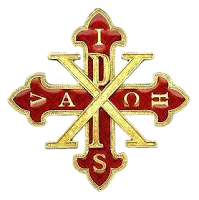 DOCUMENTS
DOCUMENTS 
Naples, 31.10.1944
Title of legitimate heir of the Empire and of the Kingdom of Bulgaria-Greece-Serbia of HI&RH the Prince Marziano II Lavarello Obrenović.
Testament
G.U.R.I. 10.02.1948
Casoria (NA), 05.06.1945
Judgment of the Royal Magistrate’s Court of Casoria No. 102, No. 380/45 R.G., June 5th, 1945.
Judgment
Perugia, 27.03.1950
Judgment of the Civil Court of Perugia, Section I, no. 256/50 R.G., March 27th, 1950.
Judgment
Rome, 03.02.1964
Judgment of the Supreme Court of Cassation No. 789/64, 4567/63 R.G., February 3rd, 1964, United Sections 7642/63 R.G.
Judgment
Villach (A), 13.10.1992
Decree of appointment of the the Grand Magisterial vicarious Powers of the Marq. Luigi Maria Picco of Montenero and Pola.
Decree
Rome, 25.10.1992
Decree of heraldic adoption disposed in favor of HI&RH the Prince Luigi Maria Picco of Montenero and Pola.
Decree
Rome, 29.10.1992
Appointment of Testamentary Honorary Curator for the last heraldic wills of HI&RH the Prince Marziano II Lavarello Obrenović.
Decree
Càceres (E), 29.06.2010
Acknowledgement of the Chapter of the Order of the Royal and Imperial House Picco Lavarello Lascaris Comnenus Palaeologus Obrenović of Constantinople -
Serbia.
Document
Abidjan (CI), 12.07.2010
Blessing sent by His Most Reverend Eminence Cardinal Bernard Agré, Prior General and Cardinal Protector of the Order, to the Knights and Dames of all categories and classes.
Blessing
Massa (MS), 12.05.2012
Judgment of the Arbitral Court - Permanent Organ of Superior Court of Arbitral Justice No. 04/2012 R.G., May 12th, 2012.
Judgment
G.U.R.S. 15.03.2013
Summarizing Recognitions United States of America
Riassuntivo
Letters to Noble Knights of the St. George and St. Stephen Imperial Military Nemagnic Angelic Constantinian Holy Order
Documento
 SENTENCES
SENTENCES 
The Italian jurisprudence has some irrevocable sentences of great interest, having multiple times had to recognize the acts concerning the exercise of qualities granted to the rank of the family, about the ancestors and the current representatives, and also on the subject of complaints and civil and criminal trials. That situation judicially ascertained by means of such judgments, in criminal and civil law, is based on inalienable rights with all the family prerogatives that this entails.
The Judgments of the Italian Magistrature, reported below, based on genuine public domain documents, have become final and it is specified that they relate to the Constantinian Nemagnic Order and/or to the Nemagnic House, to the Lavarello Lascaris House and Picco Lavarello House:
Judgment of the Supreme Court of Cassation, July 11th, 1871.
The Supreme Court judges the Constantinian Order's position after the Unity of Italy and affirms the impossibility that this Order may be abolished. As evidence, it is mentioned the Albertine Statute, which is not to innovate, or to suppress, the Orders already operating in Italy and not headed by the House of Savoy.
Judgment of the Court of Appeal of Naples, Section I, February 5th, 1872.
The Court establishes that should be judged on an equal footing the Constantinian of the Bourbon-Two Sicilies, that of the Lascaride, and that of Serbia (Nemagnic Line).
Judgment of the Court of Naples, October 22nd, 1909.
The Court confirms that the Constantinian Order is divided into three dynastic branches, each of which must enjoy the same privileges. Also recognizes the Prince Nicola Capone Nemagna Palaeologus as the direct descendant of the despot Simon Nemanja of Serbia (died in 1371), brother of the Emperor and King Stephen Dusciano.
Judgment of the Civil and Criminal Court of Avezzano, No. 9, June 18th, 1914.
Judgment of the Civil and Criminal Court of Avezzano, December 3rd, 1914, President Judge Dr. Campanile.
The Court notes that among theOrders of collation of Sovereign Families is included the Constantinian. It adds that the Grand Magistracy was boasted by the Byzantine Imperial Dynasties as well as by the Nemanja of Kaponik (it. Capone), Sovereigns of Serbia.
Judgment of the Supreme Court of Cassation, April 25th, 1923.
The Supreme Court believes that the Knightly Orders that were operating at the time of the National Unification should continue to operate, for the guarantee of the Art. 78 of the Albertine Statute. In particular, the Constantinian Order, which is the oldest from the chronological point of view.
Judgment of the Supreme Court of Cassation, July 25th, 1938.
Judgment of the Royal Magistrate’s Court of Casoria No. 102, No. 380/45 R.G., June 5th, 1945, Judge Dr. G. Romano.
The Judgment defines the Constantinian Order the oldest Order of Christianity, which is linked to the tradition of the Roman and Byzantine Imperial Guards. It notes that the Order was maintained in the Kingdom of Italy by virtue of the Art. 78 of the now repealed Albertine Statute. The Order is to be defined 'international', having to be considered an 'institution of international law'.
Judgment of the Royal Magistrate’s Court of Bari, No. 1006, No. 4419/45 R.G., August 20th, 1945, Judge Dr. F. Fusilli.
After outlining a Constantinian Order's history, and reiterated its confirmation in the Kingdom of Italy, the Judgment concludes, about the issue of the conferment of the honors, that those granted by this Order 'are not only de jure but perfectly legitimate, since take place in the orbit of the rights protected by the law itself'.
Judgment of the Magistrate’s Court of Naples, March 10th, 1947.
The Judgement considers fully legitimate the title of Hereditary Commander of the Order, granted to the Ct. Vincenzo Abbate de Castello Orléans senior (5.III.1878), by the Regent of the Constantinian Order of St. Stephen, Peter Calà Ulloa, Duke of Lauria (former Minister of the Kingdom of the Two Sicilies), Lieutenant of the Prince Basil Capone Nemagna Palaeologus, temporarily absent since committed in the work of the Berlin Congress.
Judgment of the Civil Court of Catania No. 76695, July 18th, 1947, Judge Dr. P. Cappellani.
The Court examines the case of the Duke title granted by HI&RH the Prince Marziano II to Don Vito Zappalà, and recognizes that this title was conferred by the Head of a foreign Power in the exercise of its sovereign prerogatives.
Judgment of the Civil and Criminal Court of Naples, Section IV, May 28th, 1947, President Judge Dr. Solitane.
Favorable to the Marquis Raffaele Ribaldi, born in Ausonia and resident in Naples, created Grand Cross of Justice, Palatine Count and Bailiff of Castelforte and Ausonia (Magisterial Decrees of the Order of 23.IX.1946 and 24.II.1947). The Court finds that the Constantinian of the Nemagna Palaeologus is a branch of the original Constantinian. It orders to the civil status of Ausonia and to that of Naples to annotate such appointment in the municipal registers of birth and residence.
Judgment of the Magistrate’s Court of Rome, Section VII, No. 23828/48 R.G. 5143, September 10th, 1948, Judge Dr. G. Laurenti.
The Judgment identifies in HI&RH the Prince Marziano II he last heir of the Roman-Byzantine throne, through the intermediary of Constantine the Great. The present Crown retains the Sovereignty. Although ousted, with all the prerogatives of the ruling House, including the right to grant noble titles and chivalric degrees. The aforementioned faculties remain linked to the natural person of the exiled Sovereign and to those of his heirs in perpetuity.
Judgment of the Magistrate’s Court of Vico del Gargano, No. 114, No. 217/49 R.G., June 27th, 1949, Judge Dr. V. D'Addetta.
The Judgment, taking its cue from the title of Prince of Bellaria, granted by Don Rocco Francesco Lavarello, ancestor of HI&RH the Prince Marziano II (27.VI.1916), recognizes the right of fons honorum, after examined the genealogy of the Lavarello Lascaris and other documentation produced for this purpose. It declares the Constantinian Order of collation of the House inalienable patrimony of the Crown, and reiterates that the Head of the Dynasty maintains all the prerogatives of the Reganti. It concludes that Don Emanuele Messeni, Prince of Bellaria, can use publicly this title, since it is legitimately granted, not precluding to that the XIV Transitional and Final Disposition of the Republican Constitution.
Judgment of the Civil Court of Perugia, Section I, No. 256/50 R.G., March 27th, 1950, President Judge Dr. G. Varriale.
The Judgment, even if unfavorable to the Count Aldo of Commoda, who wanted to transcribe from the civil status the title of Count granted by HI&RH the Prince Marziano II, conversely recognizes the functions of Grand Master of the Order and Pretender to the throne of the latter. It concedes that the title of ‘Count of Commoda’ can be publicly used. The Republican State may not prohibit the granting of titles and chivalric degrees by the Dynasty.
Judgment of the Supreme Court of Cassation No. 789, 4567/63 R.G., February 3rd, 1964, United Sections 7642/63 R.G, President Judge Dr. G. Auriemma.
The Supreme Court notes that in the State Archives of Genoa is preserved a deed (7.X.1447) which testifies the claims of the maternal hereditary axis of Jeronimo Lavarello of the lineage of the Monferrato, already Kings of Thessalonica, Thessaly and Macedonia. From that Jeronimo descended the Prince Prospero Gottardo Alberto Lavarello, father of HI&RH the Prince Marziano II. The Supreme Court declares that to HI&RH the Prince Marziano II compete the titles of King of Serbia, Emperor of Romans, Royal Heir of Obrenović, jure sanguinis. Due to the extinction of the Capone Nemagnia Palaeologus and the appointment of Prince Nicola of Serbia, he is the sole heir of their sovereign titles. The Supreme Court order the following change in the civil status: ‘Marziano II Lavarello Lascari Basileo of Constantinople – Serbia’.
Judgment of the Arbitral Court - Permanent Organ of Superior Court of Arbitral Justice, No. 04/2012 R.G., No. 281/2012 R.G.V.G.
Ordinary Court of Massa, May 12th, 2012, extender President the lawyer Prof. R. Cecchetti. The Arbitral Court recognizes legitimate the heraldic adoption arranged by HI&RH the Prince Marziano II in favor of the Marq. Luigi Maria Picco of Montenero and Pola who, at his death, is legitimately succeeded in the pretensions and titlings of his predecessor.



